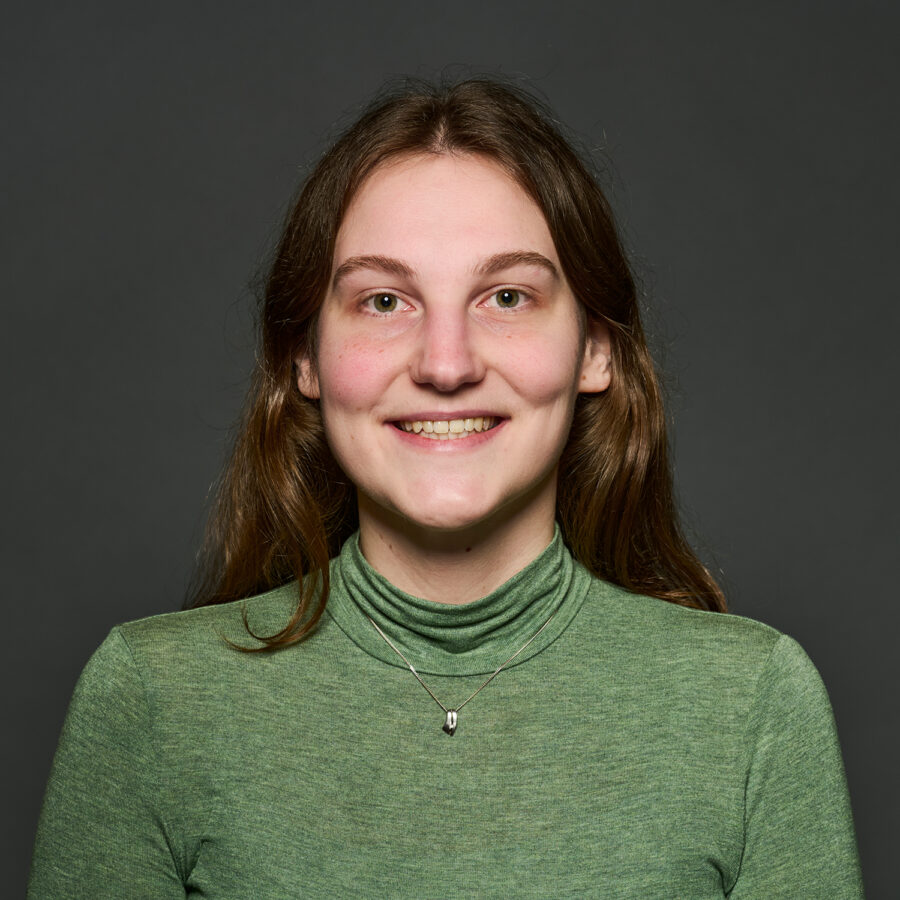At Rebel, Dyantha works on the circular economy and serious gaming

Since the beginning of this year, Dyantha Legius (25) has become part of the Rebel Circular Economy team. While working on diverse assignments and gaining new knowledge, she is orienting herself towards a specialism. Perhaps that will be serious gaming: ‘With game elements, you can achieve goals that would otherwise be out of reach.’
Dyantha, you are new to Rebel. Can you tell me something about your background and how you ended up at Rebel?
‘During my master’s in Environment & Resource Management, I studied how economics and sustainability are connected. Here, I mainly focused on impact measurement and how to determine the financial value of nature and biodiversity. I also studied Public Administration and Organization Sciences, where the focus was more on policy and strategy within and between organizations, governments, and social actors.
‘Last year, alongside my studies, I worked at a company specializing in project management. While wondering what kind of job would suit me, a colleague asked if Rebel wasn’t something for me, since Rebel combines economics and sustainability. When I finished my studies, a vacancy in the Circular Economy team came my way. After I had an interview, I knew this was the working environment I was looking for, with meaningful work, lots of variety and challenge, and room for initiative. And fortunately, they were happy to add me to the team as well.’
What is your expertise and what projects will you be working on?
‘Among other things, I will work on determining the environmental impact of circular initiatives. For instance, I helped a colleague measure the impact of a platform for second-hand goods. What environmental impact do consumers avoid when they buy a second-hand phone there, instead of a brand-new one? This includes, for example, water consumption, CO2 emissions, material use, or land use.
‘For another assignment, we are mapping the potential for wastewater reuse. We are also evaluating the government procurement strategy in terms of social impact as well as environmental impact and circularity. So I work on many different assignments, both in terms of theme and type of project.’
How do you envisage the future and what do you hope to achieve?
‘In the coming period, I hope to learn a lot about all the areas of expertise within the team. My colleagues are guiding me really well by sharing their knowledge. I would love to have my own specialism in a few years. Besides, I am also exploring opportunities within Rebel concerning serious gaming.’
Serious gaming? You’ll have to explain.
‘A serious game is a custom-made game, where entertainment is not the main objective. Serious gaming is an effective way to tackle complex challenges together, such as when guiding change processes or exploring policy options. But you can also use it to get more out of a workshop, for instance. With games, you can increase motivation and commitment, teach knowledge and skills, explore or test different options, and change behaviour. You can apply it in any situation where people’s behaviour, thoughts, or motivations play a role, no matter how small that role may be.’
What exactly are the benefits?
‘Games provide participants with a safe environment to experiment, make mistakes, and learn. As a result, people behave as they would in everyday life. That makes it easier to see what people will do under certain circumstances and what the consequences of their behaviour are. You can determine those circumstances very precisely while designing the game, without losing relevance to reality. In that way, you can use game elements to achieve goals that would otherwise be impossible or more difficult to achieve.
‘During my bachelor’s, I already gained experience making games for organizations. It is a very fun way to quickly get to know an organization and think about issues in a different way. Moreover, the solution comes from within the organization itself. I notice that serious gaming makes people enthusiastic.
‘Games have been made within Rebel in the past. Together with the colleagues who worked on them at the time, I will look at how we can further develop serious gaming. I think this skill can eventually be used across the different teams within Rebel so that clients can choose between different games when they ask for our advice.’
Finally, Dyantha: what do you like to do when you are not at work?
‘I run and cycle. I like to be outside. Furthermore, I enjoy spending time with friends and family.’